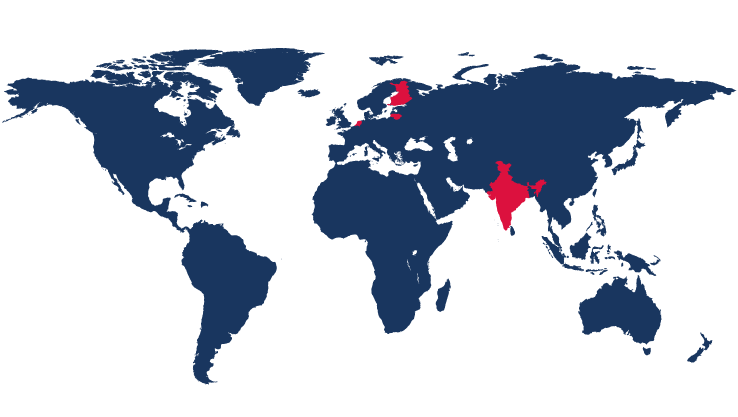Picture: Carles Martinez
PBL South Asia is an intercultural project that developed competencies and best practices for problem-based learning (PBL) under the theme of global sustainability at the participating South Asian higher education institutions. Core objectives were to develop PBL courses and materials that embed sustainable development themes as an educational approach especially in technical fields; to adapt educational content to fit intercultural and regional contexts in South Asia; to develop teaching competencies transitioning from traditional to student-led learning; and through these efforts to contribute to improved societal impact, critical thinking and innovation capacity, professional skills and student employability over time.
Participating higher education institutions (HEIs) adopted new courses and developed educational materials, adapting these to each HEI’s institutional environment and the needs of surrounding communities. Focusing on the generation of practical teaching skills and implementation capacity, the project facilitated student-led projects and interdisciplinary group work, bridging teacher training with peer teaching activities among the consortium members.
PBL South Asia aimed at long-term impact through adapted curricula, training materials and student projects. In doing so, the project encouraged increased engagement between academia and societal partners to define and address complex sustainability challenges, while building skills and knowledge among participating students, mentors and course coordinators.
The PBL South Asia project resulted in the adoption of applied PBL teaching methods at the participating HEIs in Nepal and Bhutan, and influenced the educational approaches of project partners that already had PBL elements in their curricula. It has cast light on the significant differences of learning environments and the need to carefully adapt general educational principles to serve academically, culturally and institutionally diverging academic and societal communities.
There is an increased interest in the application of PBL pedagogy for global sustainability among the participating HEIs and among stakeholders such as innovation ecosystems, societal partners, faculty and course coordinators at other higher education institutions. This project is followed by various spin-offs and new initiatives in Europe, South Asia and other regions. For South Asian HEIs interested in contacting the project partners, we recommend liaising with the PBL South Asia Network coordinated by the Indian Institute of Technology Bombay (IITB), with support from the PBL Lab at the Indian Institute of Science (IISc). For cooperation with HEIs in Finland, we recommend contacting EDUCase Platform.
